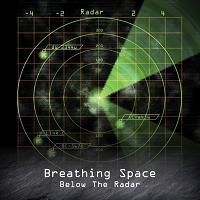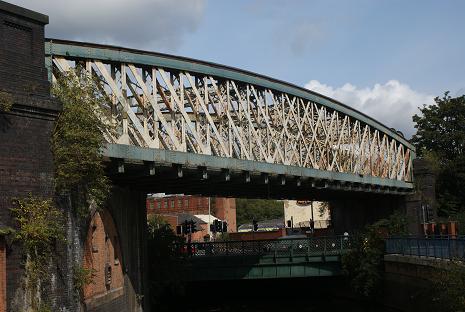I’m about to upgrade to a new version of WordPress – if things go strange for a while, that’s why….
Update: Upgrade seems to have gone OK
I’m about to upgrade to a new version of WordPress – if things go strange for a while, that’s why….
Update: Upgrade seems to have gone OK

Over the past three years, York’s Breathing Space have developed from being a side-project of Mostly Autumn’s Iain Jennings and Olivia Sparnenn to become a significant band in their own right. While some people may have feared the worst following guitarist Mark Rowen’s departure from the band just before the band went into the studio, the band have not only delivered a strong album, but have managed to top 2007′s excellent “Coming Up for Air”.
As with the last album, Iain Jennings’ production is crystal clear. Olivia Sparnenn gets better and better as a singer with some wonderful vocals throughout, and everyone else’s playing as the top of their game. For the album they’ve drafted in Mostly Autumn’s Liam Davidson to play guitars, and his more traditional rock-style playing fits perfectly. Without Mark Rowen and John Hart we may have lost the jazz-rock elements from their sound, but the album is still a lot more varied than it’s predecessor. Songs ranges from the guitar-based hard rockers and emotional piano-and-vocal ballads to big prog-tinged epics. There’s even a bit of the dance music elements which featured on the first album.
It’s difficult to single out the high points; there’s Olivia’s soaring vocals on “Clear” and “The Night Takes You Home”, There’s the atmospheric ballad “Dusk”. “Run From Yourself” combines a dance-pop rhythm with some fantastic Jon Lord-like Hammond organ playing from Iain Jennings. And the closing number “Questioning Eyes” is simply a masterpiece in the same league as Iain’s Mostly Autumn classics “Carpe Diem” and “The Gap Is Too Wide”; real lump-in-the-throat stuff, with some evocative cello playing from Charlotte Scott, some superb guitar from Liam, and an emotionally powerful vocal performance from Olivia Sparnenn.
This is shaping up as a very good candidate for album of the year. It’s certainly the best thing to come out of York for the past three or four years.
There are some brief sound clips on the band’s website, and the album can be ordered here.
While I was in Leicester on Saturday morning after Breathing Space‘s gig the night before, I went for a walk around the city, and saw the famous bowstring bridge on the west side of the city.

This bridge is one of the last surviving bits of the Great Central’s London extension in Leicester. It’s scheduled for demolition to make room for an expansion of De Montford University’s sports department.
As chronicled on Jonathan Calder’s Liberal England blog, there’s been a strong local campaign to save the bridge, but it’s looking increasingly likely that Big Money and sports jocks are going to trump preservation of Britain’s victorian industrial heritage.
On Friday morning I got up a few minutes early to photograph the steam-hauled Scarborough Flyer on it’s way from Crewe.

I was expecting the advertised loco, A4 pacific 60009 “Union of South Africa”. But what turned up was LMS No 6201 “Princess Elizabeth”.
There were a lot of people on the station with cameras. I think I was probably the only one under the age of 65. I was certainly the only person wearing a DEMU “No Kettles” t-shirt.
So the most overrated band in all music history have finally split up. Even Adolf Hitler is upset about it. The NME will need someone new to put on the cover every third week.
The Guardian’s increasingly risible Tim Jonze claims that they were arguably Britain’s greatest ever rock’n'roll band. I’m guessing fans of bands like The Rolling Stones, Led Zeppelin or The Clash would rather dispute that fact. The truth is that Oasis were just lucky to be in the right place at the right time, and were at the receiving end of so much undeserved hype from hacks like Jonze that it completely went to their heads. Yes, they did a couple of decent albums, but even most their devoted fans admit that they were just coasting after their early years.
Far from being the new Beatles, the reality is that (in my opinion of course) Oasis were not as good a band as Saxon.
Panic Room’s new album Satellite is now available for pre-order.
As it says:
“Satellite” will be available from all good retailers and on-line stores as a single 11-track album towards the end of the year, but you can pre-order the Special Edition now! This edition is a deluxe version with expanded lyric booklet plus a bonus disc featuring 4 new songs recorded at the ‘Satellite’ sessions, but not included on the standard edition of the album.
Having heard several of the songs from Swansea’s finest played live on the band’s last tour, it’s something to be ordered without hesitation.
Jon Edwards has posted the track listing for Satellite on the Panic Room web forum – several of the songs they’ve been playing live are relegated to the bonus disk. Which says something for the quality of the material on the main album.
On the latest blog on Helienne Lindvall’s Behind the Music, commenter “Rockard” completely nails the true agenda of the major record labels:
The market for songs is the same as any other market. Price is determined by the interplay of supply and demand. Songs could be sold at a higher price previously because their supply was restricted by the record companies and radio stations. You could only access them by buying an album, listening to the radio or going to a concert.
The ability to download and stream music along with the wider access that musicians can get for their songs means that effectively the supply curve has shifted to the left. Since this has happened, their whole strategy has been to try and shift that curve rightwards again by freezing the competition. The competition here isn’t just illegal sites but independent bands distributing their music online.
These record companies are not the artists’ friend. They are not music lovers. Their profits are maintained as much by who they don’t sign as by who they do. It should be no surprise that established artists support the anti piracy stance of the big companies as they also profit from the current barrier to entry.
There is no chance of a return to the old model so they need to be working on a new business model. Optimistically I see more live music and greater market segmentation, i.e alternative artists.
Yes, this is what I have been saying for years. I’ve always believed that the major labels hatred of downloading and filesharing had less to do with stopping people pirating U2 and Metallica, and more to do with stopping people discovering new music that they don’t own.
From a blog which claims to be “First in Music Analysis, Lefsetz Letter we get this post about the concert business.
Maybe no one cares to the equivalent of a multiplatinum level anymore. Maybe the live business has to give that paradigm up. At least for a decade, until new acts are grown.
We want music that resonates. And we want music. Lady GaGa is outfits. Katy Perry is so second rate she’s third rate. The future looks more like the Kings Of Leon. A band that’s been around for years that finally breaks through. And doesn’t break the bank when it sets ticket prices.
Screw lawn tickets at a discount. That’s like listening to music on your neighbor’s stereo. How about getting a ticket for a developing artists show when you buy the ticket for a star. We’ve got to get people sampling, we’ve got to get people coming to the show on a regular basis.
Since the post doesn’t allow comments, I’ll respond here. Has it really not occurred to this guy to go out find music by himself rather than be a passive consumer of whatever is served up by the corporate biz? There’s plenty of great music out there. Every genre you can imagine and many more you can’t – you just have to look for it for yourself rather than wait to be spoon-fed.
Go and read a few music blogs; listen to last.fm, network online with other music fans. You might even make a few new friends that way. Once you’ve realised there’s more to music than the narrow commercial mainstream you can go to club venues and see great bands for a fraction of the one-gig-a-year price for some has-been at a corporate enormodome.